- +86-19857418482
- info@chinese-surfing.com
When you first begin to think, "I want to study Chinese for a while," you can't help thinking, "I hear that Mandarin is the most difficult language to learn in the world, I'm worried I won't learn very well, and that my time and money will be wasted."
To begin with, is studying Chinese really that hard? As a Chinese native who has been teaching Mandarin for nearly ten years, I think that for people not born in China, and for whom Chinese is not their first language it can be difficult, yet in some ways this language can be very simple.
First of all, this kind of so-called difficulty is true for when you start to study or do anything, like beginning to lose weight.
Secondly, this kind of difficulty comes from anything that is completely novel. When we are used to using the roman alphabet, we can still sound out words we haven't encountered yet. However, to the English speaker it is just like trying to use iOS for someone who has always preferred Windows. Differences between Chinese and English can seem like they are N times more. The third thing is, because Chinese can be so completely unique to a learner's experience, with almost nothing already known, it is then difficult to grasp, set effective goals for, or find the best path of study. Without discovering effective study methods double the efforts will only get half the results. After all the hard work a sentence of Chinese might still remain so difficult that a learner eventually gives up.
So Chinese is somewhat difficult, however it also has its own logic and rules. In these years of teaching, I must absolutely tell all of our students that Chinese is not as difficult as you imagine. Your need is to clearly conceive of your objective, like a key to unlock the world of Chinese, a map to navigate it, and an able guide to easily explain the difficult and profound.
Just imagine for a moment, a present-day Chinese character passed down from antiquity is able from within its structure to represent the flow of history. Study Chinese it will be like you are swimming in the river of the language's history.
This article as a whole establishes how to study Chinese, and all that follows looks in detail at the different stages to studying Chinese, while introducing each step along the way.
So, when studying Chinese, what sections should I study?
In general: Pinyin, Chinese characters, vocabulary, grammar and sentences, and communication topics.
For Chinese, each part of a character has its own ideography, the sight of which can allow a reader to guess its meaning, and with pictophonetic characters the ability to read it aloud.
Luckily, along with society, the language also was part of the need to grow, and so Pinyin was developed. Pinyin is a phonetic tool to assist in the reading and pronunciation of Chinese characters. It provided phonemes for Mandarin, the common language of the Chinese. On 11th of February 1958, the National People's Congress of China proclaimed the plan. In 1982, it became the international standard ISO7098 (Chinese Pinyin written in the Roman alphabet). Chinese people in other places of the world, such as Singapore, also adopted and taught Pinyin.
Therefore, the foundation of our classes is introducing students to Pinyin. Pinyin is made up of three parts, the initial sound, the final sound, and the tonal variation. In the modern Chinese language, there are 23 initial sounds in total, 24 final sounds (among them 6 single finals, as well as 18 compound finals), with 16 whole syllables.
声母表
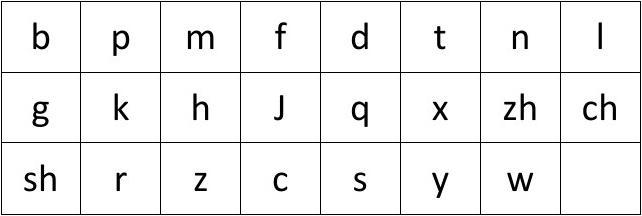
韵母表
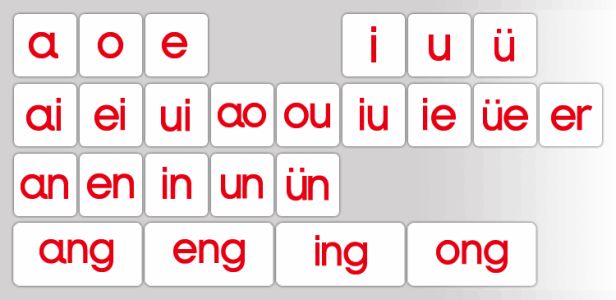
Initials and finals together compose more than 400 syllables.
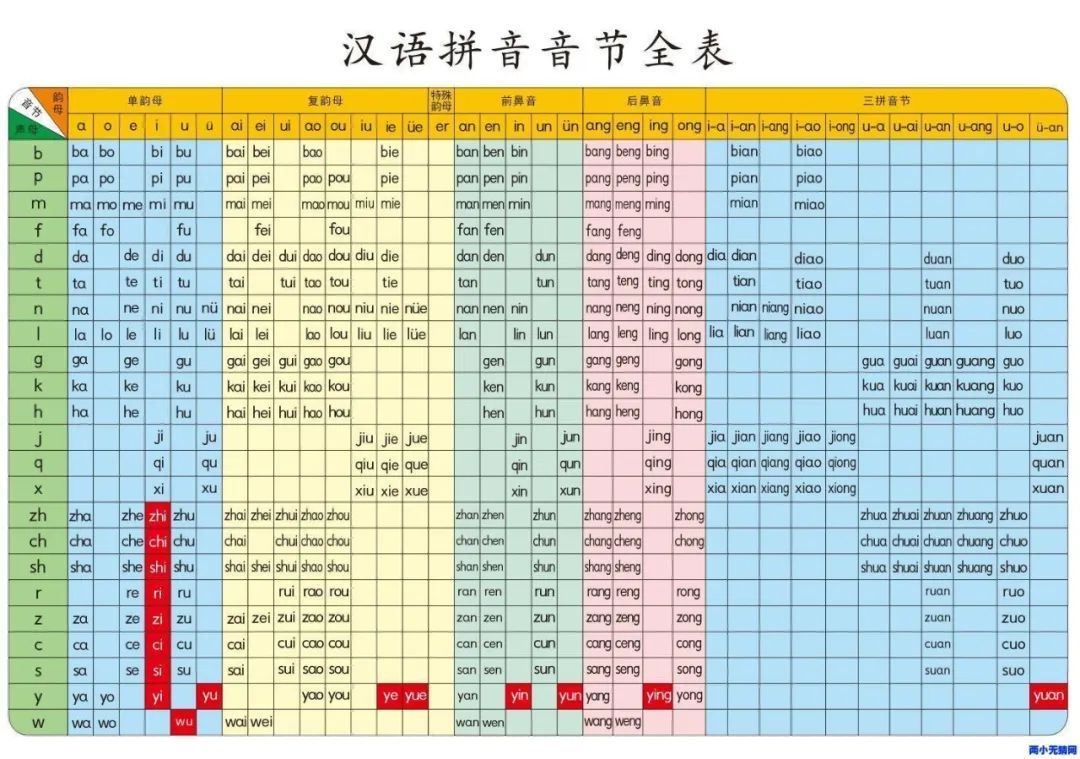
The difficulty, just as every learner might imagine, is in the tones.
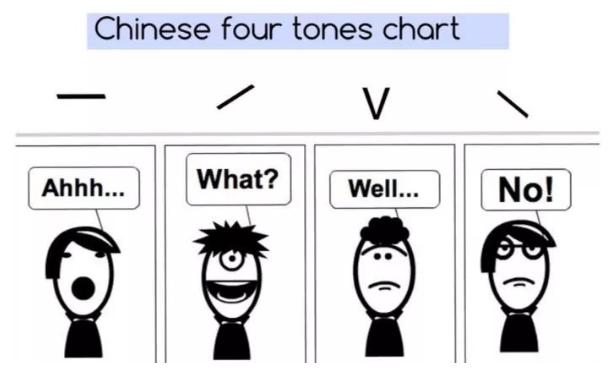
Most Pinyin can be read correctly by an English speaker. However, some pronunciations are special to Mandarin. With the teacher's correction and repeated practice, you will eventually form a “muscle memory” (habituated learning) for your Chinese.
This part of the learning is usually completed in the process of mastering HSK Level 1.
It's obviously important that you have good pronunciation. What is interesting in China is that with good, authentic pronunciation you can quickly close the distance with a native Chinese speaker, to the extant that many people will automatically think, "Oh, you can speak Chinese”, “You can speak Chinese fluently", or, "Your Chinese is very, very good."
However, at the beginning, perfect pronunciation is not required or necessary. At the very least, it is good to pronounce clearly and correctly and avoid misunderstanding. With effective practice, it is likely that long-term you will gradually reach the target, authentic pronunciation.
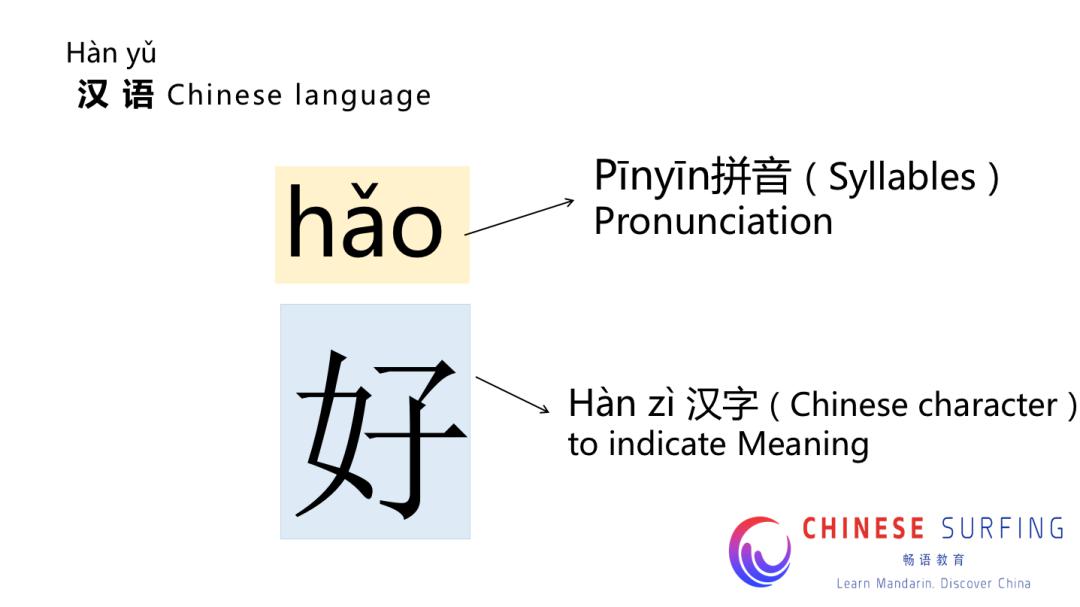
What should be your target for Chinese characters at the elementary level?
1. Basic strokes, stroke order of characters and correct writing.
2. Basic pictographs, monographs, and pictophonetic characters
3. Basic Structure of Chinese Characters
4. Pictophonetic characters and simple radicals.
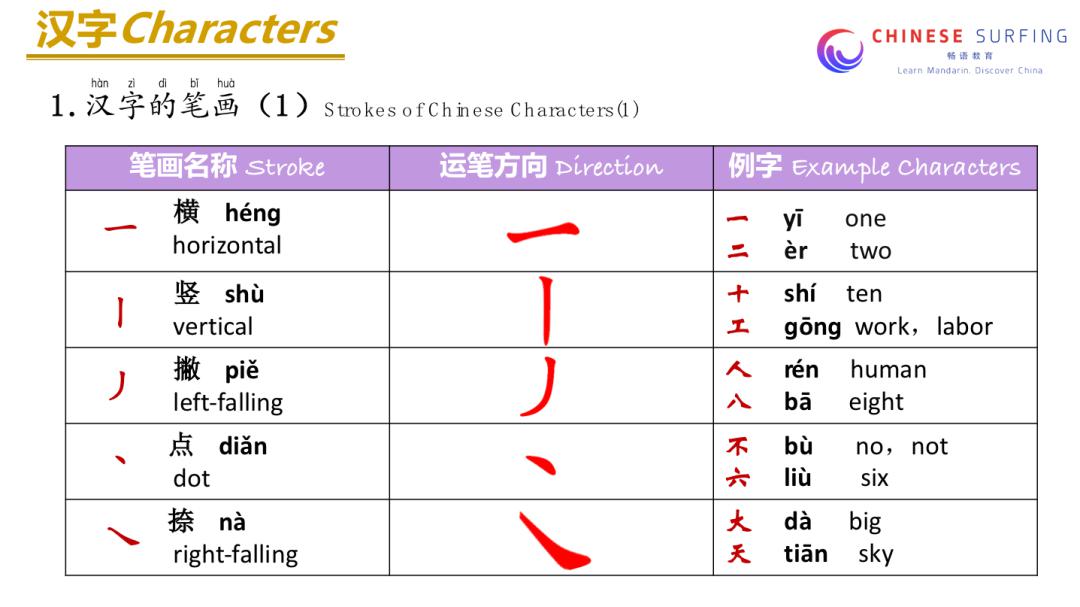
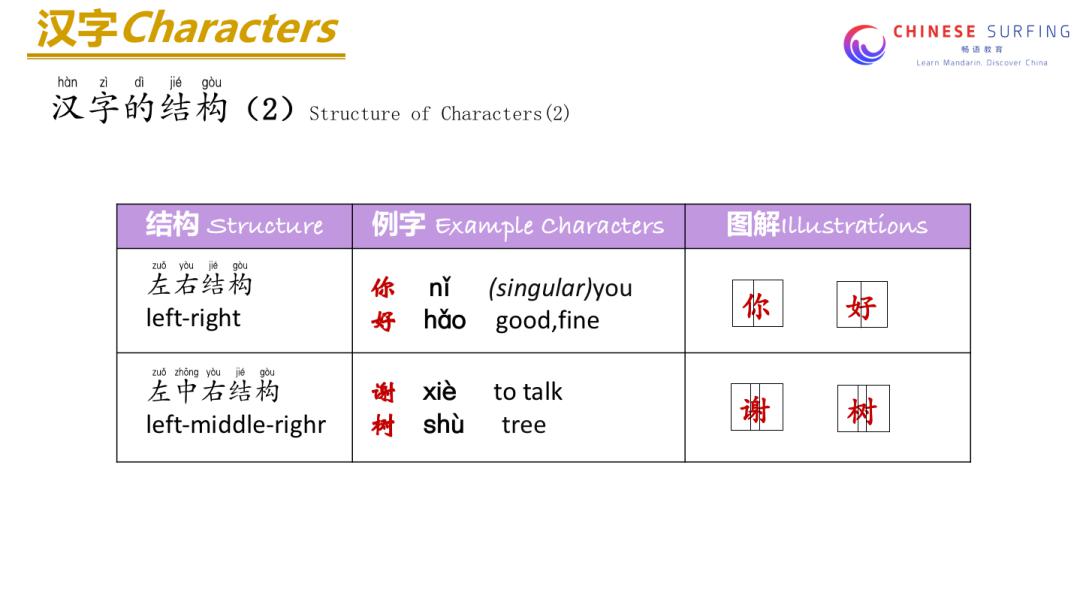
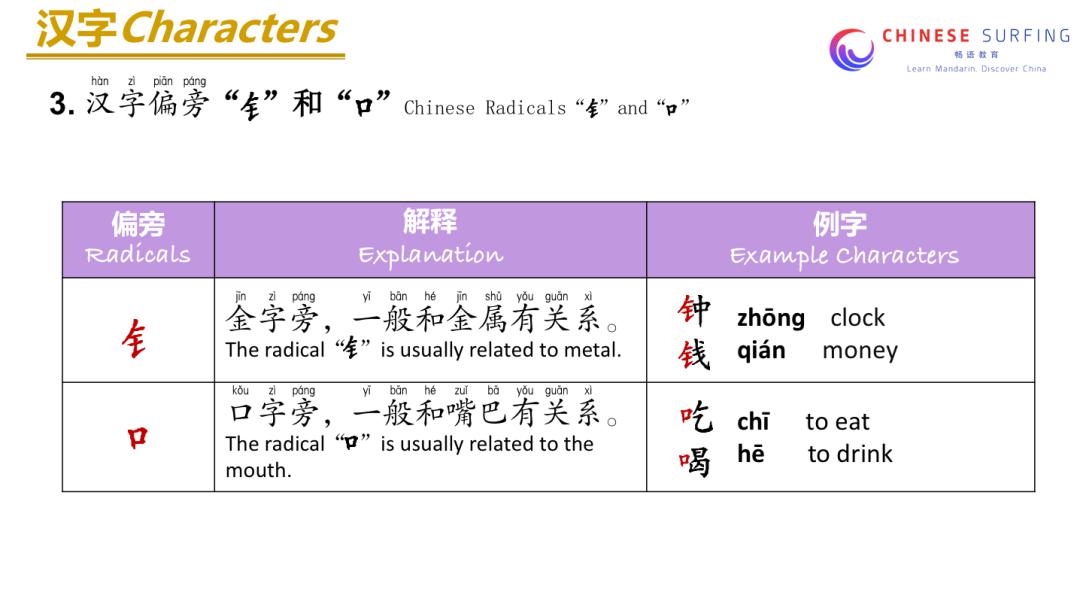
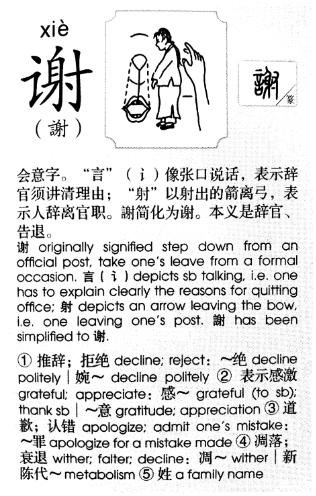
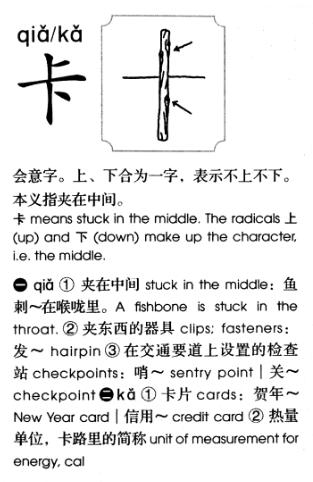
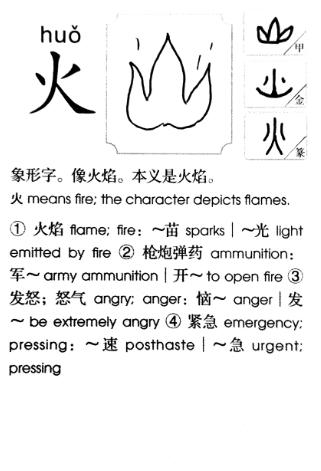
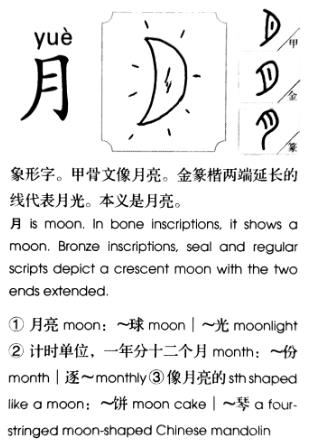
Usually after finishing the first level, students will have a basic understanding of Chinese characters and be able to recognize approximately 100 Chinese characters.
According to a statistic, there are nearly 100,000 Chinese characters, while we generally commonly use only 3,500 of these. After mastering these 3,500 Chinese characters you can basically understand more than 90% of all Chinese language materials. Of these prevalently used characters, 1000 are very common, and on the whole represent 80% of all such materials.
Chinese Characters in the HSK:
Level 1 requires 150 Chinese characters.
Level 2 requires 300 Chinese characters.
Level 3 requires 600 Chinese characters.
Level 4 requires 1200 Chinese characters.
Level 5 requires 2,500 Chinese characters.
Level 6 requires 5000 Chinese characters.
Each one level up has twice the characters of the previous level.
It seems that the number is vast, however, when larger course learning goals are divided into smaller ones, with mastery of each level, it becomes very achievable.
While some may say that learning Chinese characters are unnecessary, this isn't supported by the science. Without learning characters, one progresses blindly with a limited perspective. Chinese characters are both the root and foundation of the Chinese language. Without them, the pathways to Chinese will eventually be exhausted. As you reach the intermediate level, it becomes difficult to distinguish the same or similar sounds and Chinese characters from each other, let alone understand the meaning and culture carried by Chinese characters. Naturally at that point it is difficult to proceed further onwards and upwards.
After you have a general understanding of Chinese characters, numerous exercises in writing and recognizing Chinese characters can help you remember them. Here one encounters the second major difficulty in learning Chinese. Each Chinese character is like a story unto itself. In the process of learning, you are reading each of these stories. All you need here is patience and persistence. The sense of accomplishment and tranquility that you gain will exceed your imagination.
With Pinyin and Chinese characters, you are learning the new vocabulary one by one. These are like the bricks used when building a house. More vocabulary means that we can both express ourselves more clearly as well as understand others and the world in ever-greater scenarios.
Vocabulary in the HSK:Level 1 requires 150 vocabulary.Level 2 requires 300 vocabulary.Level 3 requires 600 vocabulary.Level 4 requires 1200 vocabulary.Level 5 requires 2500 vocabulary.Level 6 requires 5000 vocabulary.
Vocabulary is made up of individual Chinese characters, and their combinations are very interesting.
For example, with “知道zhīdào“, “知zhī” means: to understand, "道dào" means: way or road, so “知道zhī dào“ becomes: to understand the way.
"I got it, I got it!" is “我知道了!”
Chinese vocabulary does not have the morphological changes of English.
A Chinese character is fixed, with no morphological changes due any tense.
For example, "我wǒ" is "I" and "me", while "是shì" is "am" "is" and "are", as well as "was" and "were".The provocative and flexible usage of the vocabulary is also very interesting:
For example:
“好hǎo”, has six meanings.
1. Good
今天天气真好!
Jīntiān tiānqì zhēn hǎo!
The weather is so good today!
2. Okay
A:今天天气真好,我们出去走走吧?
Jīntiān tiānqì zhēn hǎo, wǒmen chūqù zǒu zou ba?
The weather is really good today, shall we go out for a walk?
B:好!
Hǎo
OK!
3. A suffix that indicates completion or readiness.
A:晚饭做好了!快来吃吧。
Wǎnfàn zuò hǎole! Kuài lái chī ba.
Dinner is ready! Come and eat.
B:好的,我把这页书看好了就来。
Hǎo de, wǒ bǎ zhè yè shū kànhǎole jiù lái.
OK, I'll come after reading this page.
4. To get well, to recover from an illness.
A:你感冒好一点了吗?
Nǐ gǎnmào hǎo yīdiǎnle ma?
Have you gotten better from your cold?
B:休息了几天,好多了。
Xiūxíle jǐ tiān, hǎoduōle.
I had a few days off, so now I am much better.
5. Very, so
① 这只熊猫看起来好可爱啊!
Zhè zhǐ xióngmāo kàn qǐlái hǎo kě'ài a!
This panda looks so cute!
② 好累!
Hǎo lèi!
So tired!
6. In order to/easy to
① 如果你来,提前告诉我一下,好做准备。
Rúguǒ nǐ lái, tíqián gàosù wǒ yīxià, hǎo zuò zhǔnbèi.
If you will come, let me know in advance, so I can prepare.
② 他把重要的事情写在笔记本里,好提醒自己。
Tā bǎ zhòngyào de shìqíng xiě zài bǐjìběn lǐ, hǎo tíxǐng zìjǐ.
He writes important things in his notebook to remind himself.
Suggestions (app) for learning vocabulary:
1. Train Chinese
2. Pleco
3. Quizlet
Because Chinese vocabulary will have no changes in any part-of-speech, fixed grammar, sentence order, and structure become important grammatical approaches. The meaning changes when the order is changed.
For example:
我坐飞机去北京。
Wǒ zuò fēijī qù běijīng.
I fly to Beijing.
我去北京坐飞机。
Wǒ qù běijīng zuò fēijī.
I wiil go Beijing to take airplane.
In general, Chinese sentences follow time logic. Whatever happens first, we say it first.Secondly, because much of Chinese grammar has been learned and appropriated from English grammar, many English grammar rules are also retained.For example, the basic sentence is subject-verb-object (SVO), such as "我爱你Wǒ ài nǐ (I love you)”,"我想要一杯咖啡Wǒ xiǎng yào yībēi kāfēi (I want a cup of coffee.)”
However, some sentence structures are dissimilar to English, such as when describing time and place. In sum, the structure is: Point time + Subject + Place + Verb + Duration time + Object.
For example:
昨天我在咖啡店看了两小时书。
Zuótiān wǒ zài kāfēi diàn kànle liǎng xiǎoshí shū.
I read a book for two hours at a coffee shop yesterday.
下午我在家打扫了一个小时房间。
Xiàwǔ wǒ zàijiā dǎsǎole yīgè xiǎoshí fángjiān.
In the afternoon I cleaned my room at home for an hour.
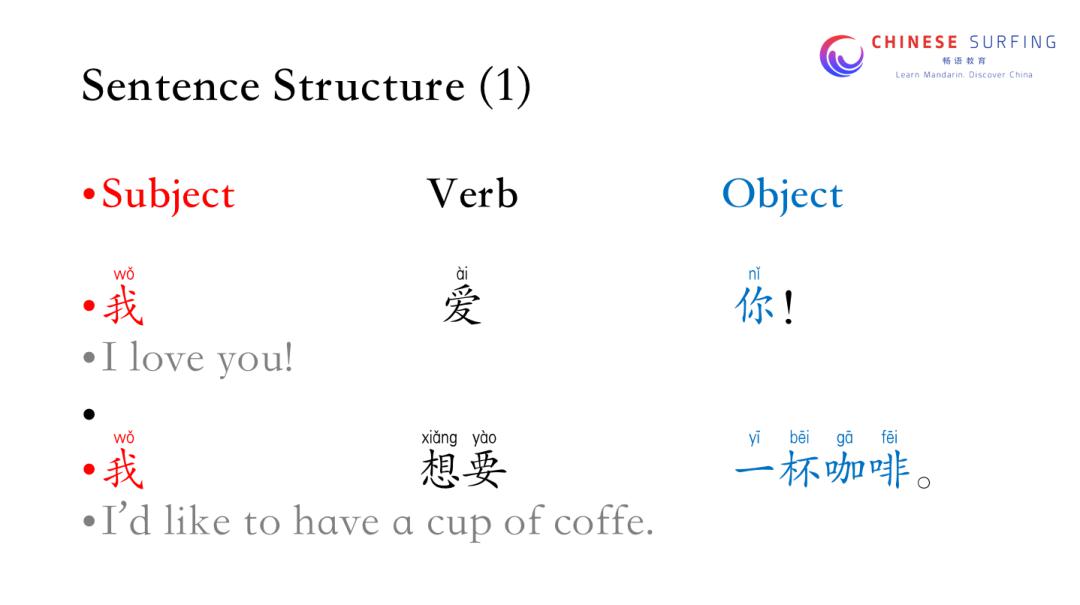
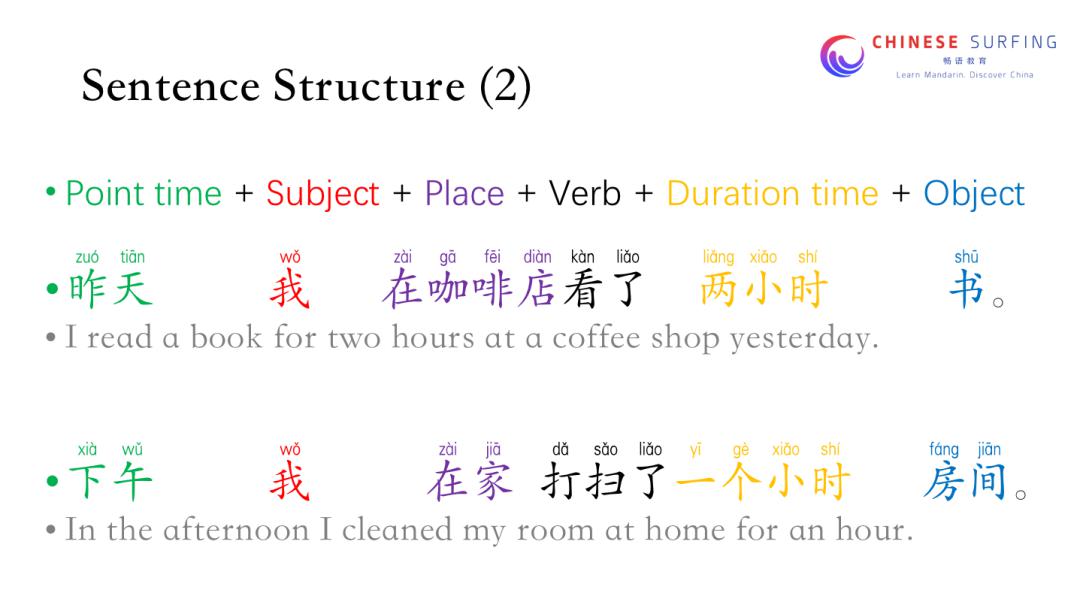
There are many such sentence structures in Chinese, and as long as you follow them, you can express the meaning correctly and clearly!
At Chinese HSK levels 1 to 3, you can complete the basic system of grammar. The intermediate and advanced levels consolidate the grammar system and extend some specific grammar usages.
Compared with the complex grammar system of other languages, Chinese grammar is really simple! This is an easy and lovely part of learning Chinese. You can use your own vocabulary and grammar to formulate a sentence. You will find that you can say much more than you thought.
⭐Here we recommend the Chinese Grammar Wiki (https://resources.allsetlearning.com/chinese/grammar/Main_Page), as well as the Chinese Grammar app.
A problem you may encounter is: after having learned so many words and grammar points, why do I feel that I am unable to speak well enough?
This is a comprehensive question. The most important thing is to just speak out, and not worry about embarrassment. At the beginning, speaking is more important than saying it right. When you are speaking you constantly revise, and you will increase in confidence and improve your language sense and cognition. Seize every opportunity around you to practice your speaking, whether talking to a Chinese teacher, to a Chinese friend, at a Chinese language activity, in a taxi, at a restaurant, etc.
Language learning is a process of continuous input and output, of continual self -improvement and enlightenment. Learning Chinese is no different.
Learning is not dominated by vocabulary and grammar, for without topics and communication they have no vitality. Only when used in a communicative setting are vocabulary and grammar truly effective.
One by one, smaller topics will aggregate into a larger picture. For example, after the first level, students can basically live and communicate in China independently, and can express a travel topic simply and completely.
When you start to envy those who speak fluently, don't worry. As long as you have effective learning strategies and persistent efforts, you will reach a goal that you once thought was impossible.
When you first start to learn Chinese, listening and speaking arrive first, followed by reading and writing. If you can communicate easily, then you will be able to touch, see, smell, and perceive Chinese in your heart, and with your new language make new friends. It is likely that you will fall in love with Chinese one day, just like me, and like many of our students.
I believe it is important to establish feasible learning goals based on your own situation at the beginning. Many learners often set their goals too high, and after a lot of trying they may “hit the wall” and become discouraged, dampening their desire to learn Chinese. When learning as an adult student we may feel just like a small child, and so we should measure our progress with baby steps. By going from zero to one every day, step by step, your progress will become a giant leap, and you will speak freely. Zero to hero. This is also the goal we want to achieve for our students at Chinese Surfing. Our Chinese name is “畅语chàng yǔ”, which means you can say whatever you wish, freely.
Many thanks to our student and friend, Justin, for helping us with this article! He has been learning Chinese since the founding of Chinese Surfing in 2015 and is now learning HSK 5-6. We are so lucky to have him and feel proud of him!

Want to start or restart your Chinese journey? We welcome you to book a free class. Let us help you put your ideas together and set an achievable goal for you!
If you have any other questions, challenges, difficulties and learning experience, welcome to talk or share with Lili, lili@chinese-surfing or by WeChat 15158116008.
Related Chinese Language Learning from Chinese Surfing
Latest Blogs about Chinese Surfing